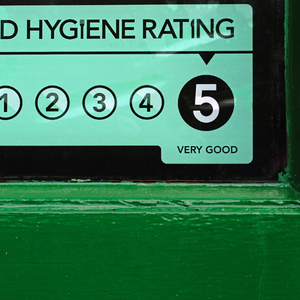About Our Courses
Candy Management Training offers a variety of online courses covering Health and Safety and Business topics to address your company’s training needs. All our courses are CPD approved, meaning you can gain knowledge of different areas with full CPD accreditation. Enrolling is quick and easy. Candy Management offers face-to-face training for IPAF and FLT on-site courses. See our online courses below.
candymctraining
This course goes on to cover the objectives of the Prevent strategy, how to base your actions on a risk-based approach, what to do if you are concerned, and much more. It begins with starts with an overview of the Government's Prevent strategy and then looks at some of the reasons people become extremists.
Approved by CPD & IIRSM
CPD Units: 3
65 mins*
This course starts by explaining what we mean by person-centred care and where this term originated. It then goes on to analyse the values represented by person-centred care and explains why care should be as much as possible tailored to each service user. Finally, it will give you an overview of care plans, daily reports, the importance of obtaining consent, and much more. This course will give you an understanding of person-centred approaches for care and support, and how to implement a person-centred approach in an adult social care setting.
Approved by CPD
CPD Units: 2
45 mins*
This course will start by defining the various terms used when talking about nutrition and hydration in care environments, the basic elements of nutrition and eating a healthy balanced diet, identify the reasons why vulnerable people might suffer from dehydration, and the tools you can use to identify people that are at risk of malnutrition and the steps you can take to deal with this condition.
Approved by CPD
CPD Units: 3
65 mins*
This course describes in detail the many facets and procedures of the Mental Capacity Act. This includes who the act affects, when it applies, how to assess capacity and the procedures that can be put in place in the home or workplace to ensure best practices are followed and people are treated fairly at all times.
Approved by CPD
CPD Units: 3
75 mins*
In the last few years, the threats to our society have multiplied and evolved in many ways. This course will start by introducing the learning outcomes and role of the lockdown officer, then discuss some of the likely reasons for a lockdown, go over some of the steps you can take to prepare your school for lockdown as well as what to do in the event of a lockdown taking place.
Approved by CPD
CPD Units: 2
60 mins*
This level 2 course is about minimising the level of potential hazards in a food catering setting. Food safety combines a number of practices to reduce health hazards. These include premises hygiene, personal hygiene, risk control, pest control and waste management.
Approved by COPD, Gatehouse Awards, Institue of Hosppitality & IIRSM
CPD: 3
75 mins*
This level 2 course is about minimising the level of potential hazards in a food manufacturing setting. Food safety combines a number of practices to reduce health hazards. These include premises hygiene, personal hygiene, risk control, pest control, and waste management.
Approved by CPD, Gatehouse Awards, Institute of Hospitality & IIRSM
CPD Units: 3
75 mins*
This level 1 course is about minimising the level of potential hazards in a food manufacturing setting. Food safety combines a number of practices to reduce health hazards. These include premises hygiene, personal hygiene, risk control, pest control, and waste management.
Approved by CPD, Gatehouse Awards, Institute of Hospitality, IIRSM & IOSH
CPD Units: 2
50 mins*
This course will define social care and talk about why people choose it as a career and what its goals and objectives are. It will also cover job descriptions, person centred care, understanding code of practices and the basics of government legislation. Finally it will touch on dealing with conflicts at work.
Approved by CPD
CPD Units: 2
40 mins*
Sharps Awareness training course raises your awareness of the dangers of sharp objects and mishandling them. It also covers the responsibilities of employers, the equipment needed and the effectiveness of PPE. Finally, it'll cover how to report discarded sharps and the correct procedures to follow if you're unlucky enough to receive a sharps injury.
Approved by CPD, IIRSM & IOSH
CPD Units: 2
55 mins*
Safeguarding is a term that describes the work and processes undertaken to minimise and manage the risks involved to vulnerable children. During this training video you will hear many facts, figures and details surrounding the risk to children, the types of abuse suffered, how to recognise the signs of abuse and key safeguarding legislations put in place to minimise the abuse of children.
Approved by CPD
CPD Units: 3
75 mins*
This Introduction to the Safe Handling of Medicines course will give you vital knowledge on how to correctly store, administer and dispose of medication in line with government legislation and guidelines. It then goes into detail about the roles of the people involved, some of the different groups of medicines, providing different levels of support to patients, infection control, label interpretation, and much more.
Approved by CPD
CPD Units: 2
60 mins*
Working in a care home isn't just work, it is going into somebody's home and they should be places where the residents are respected, and where everyone’s health and safety is managed effectively. To achieve this, everyone involved must understand their responsibilities. This course discusses the legislation that applies to care homes along with developing safe systems of work. It also covers what to do in some common situations you might encounter as well as some emergency situations. It concludes by discussing some aspects of the work environment and staff welfare.
Approved by CPD & IIRSM
CPD Units: 3
80 mins*
This Epilepsy Awareness course aims to increase awareness and understanding of epilepsy, to empower the learner to understand the different types of epilepsy and their effects on an individual. It will introduce some possible seizure triggers and describe what to do when someone has a seizure. It will also discuss some of the treatments offered to people with epilepsy and provide practical advice on what you can do if you witness someone having a seizure.
Approved by CPD
CPD Units: 2
30 mins*
A duty of care is the requirement that all health and social care professionals, and organisations providing health and care services, must put the interests of service users first. All employees should have some element of training to ensure they understand the company’s overall duty of care. This course will give you an introduction to the concept of duty of care, cover how duty of care affects your work, what to do if you come across a duty of care dilemma and where to go for support or advice along with some practical examples of duty of care situations.
Approved by CPD
CPD Units: 2
50 mins*
This Dignity and Privacy Training Course takes learners through the fundamental values that every care service should uphold. The course will start by defining dignity and privacy within the healthcare sector, and will explain how the two are quite often linked. It will then go on to give you a range of useful professional tips about setting up the right working relationship with your service users, and discuss some of the issues that can arise when dignity and privacy are not respected.
Understanding diabetes is vital when caring for others. This illness can be fatal if emergencies aren't recognised and managed effectively. Diabetes is a serious lifelong health condition that occurs when the amount of glucose, or sugar, in the blood is too high. If left untreated, high blood glucose levels can cause serious health complications. This course is aimed at people working in the health and social care sector and will provide an overview of the condition, the common symptoms that might indicate someone has diabetes, methods of diagnosis, some possible treatments and common complications that can affect those with the condition.
Approved by: CPD
Units: 2
45 mins*
This Dementia Awareness training course has been designed as an introduction to dementia so that carers can learn more about the subject. This course is intended to give you an overview of the common types and symptoms of dementia as well as going into how it can affect the brain in different ways. It also covers strategies to use with clients with dementia and dealing with challenging behaviour. The course is intended for anyone who works with or around people that may be living with dementia.
Approved by: CPD
Units: 2
25 mins*
This course defines behavioural safety and explains the origins of the concept. It covers how it can be implemented in the workplace and some of the potential benefits. It includes analysis of some examples of 'at risk behaviours' and some examples of ways you can measure how well your organisation is doing when it comes to safety. Finally it touches on some of the key laws regarding health and safety in the workplace and how to ensure positive workforce attitudes.
IIRSM & IOSH
45 mins*
This course will provide you with an understanding of what autism is and how it affects a child's daily life. It will touch on what factors contribute towards a child developing autism as well as some of the typical behaviours associated with it and how to can provide effective support for those with the condition. You’ll learn that autistic individuals share common areas of difference, but will have their own profile of strengths and challenges. It also discusses what happens during the diagnosis process, some of the intervention methods that can help manage the condition and suggests some simple adaptations you can make to improve a child with autism's day to day life.
The reason why asbestos is so dangerous to workers is partly due to its widespread use throughout the twentieth century and the impact it has on the human body and in particular, the respiratory system. As well as informing you about the risks of working with asbestos, the course will deliver a lot more information about: Recognising asbestos, where it's used, minimising the risks and the legislation about working with asbestos. This course is a variation on the Asbestos Awareness course that contains specific information for designers and architects.
This course covers general allergies, food allergies, and food intolerances and explains the differences between them. It covers the 14 allergens controlled by legislation along with food additives and how they can trigger allergic reactions. As there is no cure for food allergies, they must be managed and the only way to do this is to avoid the foods which cause the allergy. It takes a detailed look at the symptoms of food allergies and takes in the wider picture discussing the current theories of why rates are increasing. It then finishes off by covering practical steps that can be taken to reduce the risk from allergens and also what steps can be taken both internally and externally to monitor the control measures.
This course will help you to understand ADHD better. ADHD is a chronic condition that creates a range of persistent symptoms such as difficulty sustaining attention, hyperactivity, and impulsive behaviour. The course covers the definitions of ADHD, the different types of ADHD, and how to recognise some key signs and symptoms. It'll also talk about how ADHD is diagnosed and treated, and offer some useful information about how to live with ADHD.
Approved by CPD
CPD Units: 2
45 mins*
All food handlers can satisfy their legal requirement by taking this course. This course is for anyone who works in a setting where food is cooked, prepared, or handled. It is intended to give you an overview of how the National Food Hygiene Rating Scheme works, what the scoring criteria are and how these are assessed by the inspectors, the appeals process, the Safer Food Better Business management system, E-Coli and concludes with some practical advice for ensuring your premises gets the best score possible.
Approved by CPD, Institute of Hospitality, IIRSM & IOSH
CPD Units: 2
50 mins*
Mental Health is a serious subject. Nearly two-thirds of people say that they have experienced mental ill-health. In fact, the HSE reports that mental ill-health (specifically stress, depression, or anxiety) is now accountable for over 50% of all working days lost and 51% of work-related ill health in 2019/20. This course explains the difference between mental health and mental illness. It covers the symptoms of a number of the most common mental illnesses so you will know what to look out for or what to expect if you are working with someone with one of these conditions. As well as providing some practical advice on how you can work effectively with those affected by these conditions.
Approved by CPD
CPD Units: 2
25 mins*
The risk of infection poses a significant risk to staff and others. Without effective infection prevention and control approaches, an infection can cause distress, harm, and impair the quality of life. Infection frequently requires additional costly resources to treat. Therefore, prevention of infection has to be a key priority for all staff. This course will start by defining infection prevention and control and explaining the impact of good and bad infection control. It then goes into detail about the legislation that applies to infection control, the different types of microorganisms, how bacteria are transmitted, the chain of infection, and much more.
Approved by CPD & IIRSM
CPD Units: 2
60 mins*
This course will start by defining sexual harassment and explaining how protection comes from both employment law and criminal law. You'll see from workplace statistics how widespread and serious the problem is, and how the management response to concerns raised is often poor or non-existent. It also addresses how allegations should be handled, and explains the importance of having clear and robust policies and the role line managers tend to take when it comes to dealing with these situations.
Approved by CPD
CPD Units: 2
55 mins*
No matter your industry, or your role at your organisation, health and safety is important. Organisations should promote a safety-conscious culture to protect their staff. As an employee, you can contribute to this by keeping yourself and colleagues safe. At the end of this course you will have an understanding of health and safety legislation and you'll be able to list common causes of accidents. You'll also be able to understand good practice in relation to electricity and describe the use of safe manual handling techniques as well as be able to describe good practice associated with COSHH regulations, be able to describe your action in the event of a fire and also you will know how to deal with an accident.
Approved by IIRSM & CPD
CPD Units: 2
45 mins*
This course is for anyone and everyone in a working role who wants to learn the basics of safety and health. Working safely is in the interest and concern of all staff, both employers and employees. Health and safety is one of the few areas where the law places specific duties specifically on employees so a knowledge of where this applies and how to ensure that it is adhered to is vital to protect individuals and businesses. The course covers a wide range of topics including fire safety, asbestos awareness, working at height, COSHH, PPE and electricity. It also covers schemes for improving safety performance and methods of protecting the environment.
Approved by IIRSM & CPD
CPD Units: 4
150 mins*
People who work in confined spaces are at greater risk of danger. It is therefore important that they know how to protect themselves and other workers. This course will cover the legislation associated with working in confined spaces. What constitutes a confined space, the potential hazards, safe operating procedures, and emergency procedures and rescue. Important note: This is an awareness course only, designed for people who need to be aware of the hazards and risks of confined space working but are not required to enter a confined space. If you are required to perform any work activity in, or in the proximity of, a confined space then you will also need to have an 'approved' standard of practical training at the 'appropriate' level.
Approved by IIRSM & CPD
CPD Units: 2
25 mins*
The Work at Height Regulations 2005 state that anyone who works at height should receive suitable training to prove that they are competent and safe in their work. This course is aimed at anyone who undertakes work at height, or who employs people who regularly work at height. It covers what constitutes work at height, the safety issues, and how to assess and reduce some of the risks. Important note: Please note that this is an awareness course only, if your duties include working at height you will also need further practical training, you can get in touch with us to arrange this.
Approved by CPD, Gatehouse Awards & IIRSM
CPD Units: 3
105 mins*
Slips, trips and falls are the most common hazards in workplaces of all kinds, contributing to over 10,000 serious injuries each year. In this course, learn about where these hazards originate, and how to prevent them from causing harm. This course will dispel some of the myths surrounding them. It also touches on the law as it relates to slips, trips, and falls. It contains real examples of where things have gone wrong and some practical steps that could have been taken to prevent these incidents. The course also covers some of the straightforward changes that can be made in most businesses to significantly reduce the risk of a slip, trip, or fall incident occurring.
Approved by IIRSM
60 mins*
This course is aimed at anyone who has a duty of care for or comes into contact with, adults in need of care and support, either as a paid professional or a volunteer. You and the organisation you work for must take appropriate measures to protect adults in your care, while still ensuring they are supported and empowered. This course can bring you one step closer to being able to do this.
Approved by CPD
CPD Units: 3
75 mins*
This course is for candidates who have completed their Level 1 Health and Safety in a Construction Environment course and want to prepare for the touch screen test. The course reviews the key learning objectives of the Level 1 course and concludes with a 50 question test that has been produced in the style of the touch screen test.
Approved by CPD
CPD Units: 3
120 mins*
No PPE provides 100% protection. PPE that is correctly selected, used and maintained is capable of providing effective protection. Unsuitable, poorly maintained and incorrectly used PPE may give limited protection or none at all, and may even put the wearer at greater risk. PPE which provides little or no protection is a waste of time and money. This course will show how wearing PPE plays a crucial role in preventing and reducing fatalities, injuries and diseases at work. It includes details of a wide range of PPE options, examines the legislation and regulations and also covers the role risk assessment plays in the selection and use of PPE. The course concludes with advice on how to use, fit and wear PPE and its physical and theoretical limitations.
Approved by CPD & IIRSM
CPD Units: 2
60 mins*
Over 1 million employees in Great Britain are exposed to levels of noise that put their hearing at risk. Ensure you are protecting your workers and others with this course on Noise Awareness. This course will show you how dangerous noise can be in the workplace, and the main safety issues you should be aware of. It will take you through some of the simple science, the main laws that apply and introduce you to noise level limits. It also covers some of the specific health risks and how to avoid them by producing risk assessments, action plans and through the provision of appropriate Personal Protective Equipment.
Approved by IIRSM & CPD
CPD Units: 2
55 mins*
Whatever sector your organisation operates in, risk assessments are a crucial part of ensuring employees are safe from harm and that workplace risks are anticipated and reduced as much as is reasonably possible. By law, every employer must undertake this kind of assessment for health and safety risks within their working environment.
At the end of this course, candidates will have an understanding of what a risk assessment is and how to complete one. To achieve this the course will define important terms, provide some basic background information to explain how important risk assessments are, and discuss some of the legislation that applies. It will then go on to provide practical advice on how to identify hazards and analyse risk before finishing off by explaining the responsibilities of both employers and employees with regard to risk assessment.
Approved by IIRSM & CPD
CPD Units: 3
90 mins*
Even with stringent control measures in place, a workforce fully up to speed with health and safety training, and positive safety culture amongst employees, there will always be risks in a workplace. This course acts as an introduction to personal safety for lone workers and applies to those that work alone within business premises, mobile workers and homeworkers. It covers the legal responsibilities of both employers and employees, some of the common security precautions that can be implemented, practical steps you can take to avoid conflict in lone worker situations and other elements that can contribute to lone worker safety.
Approved by IIRSM & IOSH
45 mins*
Our online Fire Marshal Training course is suitable for anyone who will be taking on the role of a fire warden or fire marshal within their organisation. Anyone at any level can complete this fire marshal training course, and no previous knowledge is required. The main outcome of this training course is to provide you with the knowledge to carry out the functions of a fire marshal. - Please note this course also contains all of the content in the Basic Fire Awareness and Fire Extinguisher courses.
Approved by CPD, Gatehouse Awards, Institute of Hospitality & IIRSM
CPD Units: 5
220 mins*
It doesn’t matter whether you are a managing director or a part-time cleaner: this course equips all workers in an organization with the skills and knowledge they need to help minimise the risk of fires taking hold in professional settings. Learn how to identify the different types of fire extinguishers that might be installed within your workplace and what situations they might be used in. At the end of the final module, you will be presented with a simulation that will test what you've learned.
Approved by CPD, Gatehouse Awards, Institute of Hospitality & IIRSM
CPD Units: 2
25 mins*
Electricity can cause serious injuries and, in some severe cases, accidents resulting in death. This course looks at the basics of electricity and how it behaves. Gaining this knowledge is useful for employees, as it can help them make informed and safe decisions when working with electrical equipment. This course will start by covering the many benefits electricity brings to society, as well as its key components voltage, current, and resistance. It will explain the two main types of electricity, cover UK accident and death statistics, and describe a simple way of remembering the electrical hazards. It then goes on to provide basic instructions about how you could safely help someone you suspect has received an electric shock.
Approved by IIRSM
45 mins*
Organisations are required by law to promote and protect the mental well-being of their workforce. A comprehensive Mental Health Policy, along with easy-to-understand operating procedures, will incorporate mental health issues into established organisational thinking. It will make sure everyone knows how the organisation views and deals with workplace mental health.
When people have good mental health, they are more likely to fulfill their potential. That means they enjoy work and cope easily with work situations. They have a happy family life and good social relationships. This course covers the steps that organisations should consider when developing and implementing a comprehensive workplace Mental Health Policy.
Approved by CPD & IIRSM
CPD Units: 2
20 mins*
Ensure that you are doing everything you can to contain the spread of COVID-19. Learn how it spreads and what you should do to protect yourself and others. This course explores the risk to workers caused by the COVID-19 virus and covers actions that can be taken by employers and employees to protect themselves and each other as they return to work. The content of this course is based on the latest information from the UK government and the NHS.
CPD Units: 2
30 mins*
This course covers some of the different ways of communication, how to identify barriers to communication and how to reduce these, making sure the person you are communicating with understands what you are communicating, how to get help with communication issues, and much more.
Approved by CPD
CPD Units: 3
75 mins*
This course covers the common mistakes people make when preparing for and giving a presentation so you can avoid these, as well as going over good practice and providing some practical advice that you can put to good use the next time you have a big presentation to make. Giving a successful presentation can be one of the hardest parts of many people's jobs.
Approved by CPD
CPD Units: 2
55 mins*
Job interviews are a two-way process, where the employer and the interviewee can both decide if they are a good fit. This short course will provide you with some useful tips for how to prepare for an interview including preparing answers to common questions to help you win the jobs you need.
Approved by CPD
CPD Units: 2
20 mins*
This course aims to help you write effective objectives that deliver results. It covers the importance of goals and objectives and why we need them, the barriers to you achieving your objectives and how to overcome them, what SMART objectives are and how to write and identify them and concludes with some tips for successful objective setting.
Approved by CPD
CPD Units: 2
30 mins*
This course will help you to understand the different types of absence and Identify ways of measuring absence. It covers why you should complete return-to-work forms and how to conduct effective return-to-work meetings. The course finishes off by explaining the formal processes involved in managing absence and how to apply appropriate policies.
Approved by CPD
CPD Units: 2
30 mins*
This course looks at different decision-making approaches you can use and finishes off with some notes on keeping a learning log to help you learn and grow, ultimately becoming a more confident and effective participant or chairperson. It also goes through some basic definitions and statistics that outline how important running meetings effectively can be. It examines factors that make meetings great, and some practical steps you can take to ensure everything runs smoothly and successful outcomes are achieved.
Approved by CPD
CPD Units: 2
60 mins*
The course will start by looking at the way standards are set, monitored and regulated for social care organisations and workers throughout the UK. It then goes on to cover the codes of practice and legislation, reflecting on your work to ensure continued improvement, communication, feedback and much more.
Approved by CPD
CPD Units: 2
35 mins*
This course will go through numerous things including an introduction to the private security industry, and the main services it covers, discussing the body which regulates the industry and highlights the standards of behaviour expected from security operatives, and the law as it relates to the industry. It includes an in-depth look at health and safety issues, the concept of duty of care and examines a range of emergency situations which security operatives might be involved with. The course also covers communication skills, including tips for effective radio communication and instructions on how to use the phonetic alphabet.
Approved by CPD & IIRSM
CPD Units: 3
90 mins*
This course has been designed to ensure you have the techniques to improve your efficiency, output, and ability to function more effectively - whether in your ordinary day or when deadlines loom and the pressure is building. People do better in their job when they manage their time correctly.
Approved by CPD
CPD Units: 3
105 mins*
In any organisation, the traditional model of strict command and control wastes a significant amount of time and money. Mutual trust, employee motivation and readiness to perform can easily be undermined. Performance management, on the other hand, offers a different, much more effective approach. In formal terms, performance management involves the achievement of performance targets through the effective management of people and the environment in which they operate. It's about setting achievable goals for the organisation and targets for individuals and teams.
Approved by CPD
CPD Units: 22
55 mins*
This course discusses how you can sell by stressing the results prospects can expect if they buy, and how best to play to their emotions. It then finishes off by covering negotiations and how to avoid them and includes some methods for closing a sale. It also covers basic rules for those in sales, cold calling, and how to deal with gatekeepers and takes you through a typical face-to-face meeting.
Approved by CPD
CPD Units: 3
120 mins*
This course covers the basic principles of project management and covers some of the tools and techniques you can employ to improve your project management skills. Project management is important because it ensures what is being delivered, is right, and will deliver real value against the business opportunity.
Approved by CPD
CPD Units: 3
90 mins*
This course will introduce you to some of the import techniques and theories that can help you to improve your leadership skills and be more effective in your role. A leader doesn't have to be a manager, but it is hard to have a manager who doesn't take a leadership role.
Approved by CPD & ILM
CPD Units: 3
90 mins*
This course will introduce you to some of the key documents and legislation that relate to Early Years providers, the process for registering with Ofsted, and the various policies and procedures that need to be in place. It also covers learning and development requirements, how to observe and assess the progress of children in your care and the safeguarding and welfare requirements laid out in the EYFS Framework.
Approved by CPD
CPD Units: 2
60 mins*
By the end of this course, you will understand the need for secure handling of information and you will know how to access support if you have any questions regarding access to information. The course will cover the important role confidentiality plays in developing trusting relationships with the people in your care and it will define key terms such as 'need to know' and 'consent'.
Approved by CPD
CPD Units: 2
20 mins*
This course will start with the essentials - defining exactly what we mean by delegation and why it's so important. It then goes into details about the elements of delegation, overcoming the barriers to delegation, how you can choose which tasks to delegate and who to, the process of delegation and more!
Approved by CPD
CPD Units: 3
110 mins*
This course goes on to cover conflict within teams, explaining some of the reasons conflict occurs and some strategies for managing conflict. It finishes off by exploring some of the different styles of management behavior and how to develop a resilient team. It will also explains in detail what team working is and cover some of the basic principles for putting together a group of people who will work well together.
Approved by CPD, ILM & IIRSM
CPD Units: 2
35 mins*
This course explains how to build confidence in management, by sharing the company vision, building strong teams, and listening to feedback, then it examines how a proactive HR presence benefits employee relations. This course covers the many benefits good employee relations can bring to a business and it shows you how to deal effectively with complaints, discipline, and negativity.
Approved by CPD & IIRSM
CPD Units: 2
45 mins*
Customer service can break a company's chance to turn a potential customer into a loyal customer. This course will start by making it very clear exactly what we mean by customer service, and why it's so vital and then go into detail about some of the ways you can improve the customer service provided by your organisation.
Approved by CPD
CPD Units: 3
75 mins*
Mental Health is a serious subject. Nearly two-thirds of people say that they have experienced mental ill-health. In fact, the HSE reports that mental ill-health (specifically stress, depression, or anxiety) is now accountable for over 50% of all working days lost and 51% of work-related ill health in 2019/20. This course explains the difference between mental health and mental illness. It covers the symptoms of a number of the most common mental illnesses so you will know what to look out for or what to expect if you are working with someone with one of these conditions. As well as providing some practical advice on how you can work effectively with those affected by these conditions.
Approved by CPD
CPD Units: 2
25 mins*
Stress is something that can affect all of us - it's something that can contribute to a great many illnesses, and more working days are lost due to stress than for any other single reason. Being aware of the signs of stress, some of the triggers, and how to manage them can make a real difference to your wellbeing and that of people around you. This course will cover an introduction to stress and why it's a problem, some of the causes of stress, and some ways to minimise the risk of stress.
Approved by CPD & IIRSM
CPD Units: 2
30 mins*
The General Data Protection Regulation (GDPR) is designed to strengthen and unify the principles of data protection for all individuals within the European Union and the European Economic Area. The GDPR is an incredibly important change to data privacy regulations so understanding its correct implementation is vital for all UK businesses and organisations, particularly for staff who regularly deal with personal data.
This course is designed for front-line data processors and provides a clear introduction to the main elements of the GDPR, including compliance and the consequences of non-compliance. It explains the roles of key players and covers the main categories of personal data and the lawful basis for data processing. Other topics examined include the main principles of the GDPR and the Rights for Individuals, along with the importance of your Privacy Policy. Finally, there's important information on data breaches; how to avoid them, what to do if one is discovered and how to file a breach report.
Approved by CPD
CPD Units: 2
60 mins*
As the UK becomes more culturally diverse each year, so do the workplaces in which we operate in. Therefore, Equality and Diversity training is becoming an essential part of training for all organisations. In this course, we're going to be discussing two topics, 'equality' and diversity, and how they relate to one another. Understanding this will help us to identify and address issues of unfairness and discrimination in the workplace.
Approved by CPD
CPD Units: 3
70 mins*
Professional drug & alcohol awareness course for those who may come into contact with employees who misuse substances at work. This course is intended to provide you with the information you need to understand and spot the signs of drug and alcohol misuse. It covers the legal and social implications for the individual and for your company if you find out an employee is misusing drugs. This course discusses the law, different types of drugs, and policies that can be put in place to protect yourself, your business, and your employees.
Approved by CPD, Institute of Hospitality & IIRSM
CPD Units: 3
80 mins*
Learn about some of the triggers for workplace conflict, as well as suggesting a number of methods of managing it. A conflict in the workplace can be severely disruptive. Not only will it affect those directly involved, but it can also end up impacting everyone else who has to work with them . Unmanaged conflict within the workplace can be costly in terms of time, money, and employee engagement. This course starts by explaining what constitutes a conflict and some of the most common causes. It covers the stages of conflict and contains several extensive modules that outline conflict resolution techniques. Finally, it explores how effective management of conflict can result in positive outcomes in the workplace.
Approved by CPD, Institute of Hospitality & IIRSM
CPD Units: 2
45 mins*
Money laundering is more common than many people think; HMRC estimates that £40 billion is laundered in the UK every year. This online course prepares your employees to do their part to prevent money laundering, by taking on tasks such as due diligence and checking someone’s identity. Here's what's covered: the essential facts about money-laundering, along with the relevant legal aspects and how companies can set up systems and policies to detect and deal with what is a major criminal problem, worldwide.
Approved by CPD & Institute of Hospitality
CPD Units: 2
50 mins*
The Bribery Act affects every UK business and the consequences of non-compliance can include heavy fines or long prison sentences for employers and employees. This course examines bribery and the legislation, measures and procedures that can uncover, control and reduce the impact of this criminal activity. This information is broken down into the following sections; Why corruption and bribery occur, The UK Bribery Act, Anti-bribery policies, anti-bribery management systems and how to deal with bribery in the workplace.
Approved by CPD & Institute of Hospitality
CPD Units: 2
50 mins*
Bullying in the workplace takes many forms. It may be covert and insidious or a one-off blatant incident. Either way, bullying, and harassment are always unacceptable. Upon completion, you will know to recognise bullying and create a robust policy. This course covers the commitments that should be laid out in your company's anti-harassment and bullying policy so as to comply with UK law. It explains the differences between harassment and bullying, the steps that can be taken if either of these occurs in or out of work, and some case studies to illustrate the points covered throughout the course.
Approved by CPD
CPD Units: 2
32 mins*
Almost daily we hear about cyber attacks on large organisations, so it is important to ensure your business is protected which starts with your employees. Learn about common cyber threats, what a cyber attack means, and what practical tools and strategies you can put in place to prevent them. Employees, managers, and directors should all have a good understanding of the threat posed by cyber-attacks and the importance of guarding against data breaches. This short course will explain why cyber attacks and data breaches happen and provide practical advice on how to set up effective defenses.
Approved by CPD & IIRSM
CPD Units: 2
25 mins*




















































































